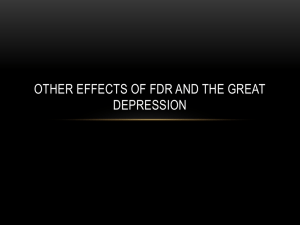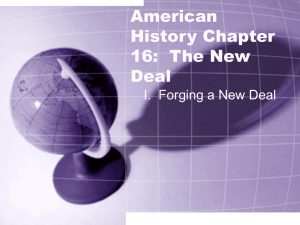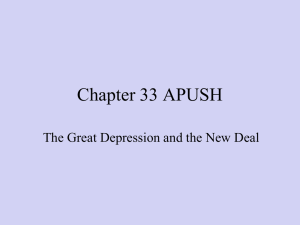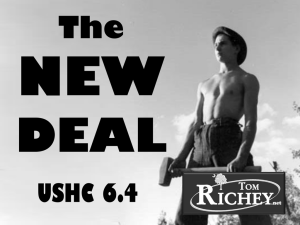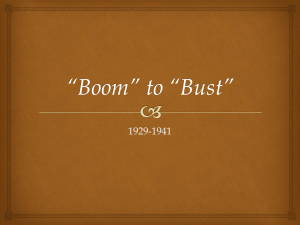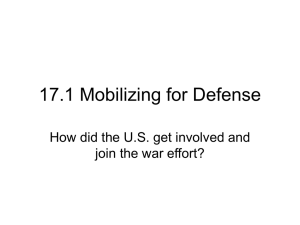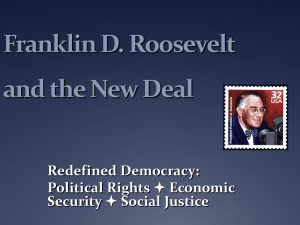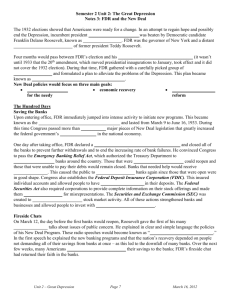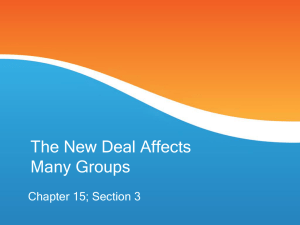1stnewdeal - Lewiston School District
advertisement
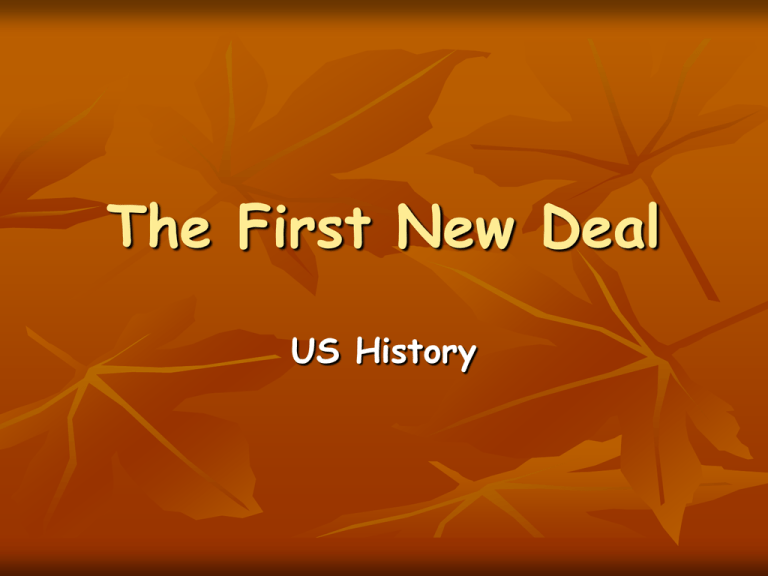
The First New Deal US History Franklin D. Roosevelt In 1932, FDR was elected President. People were happy to see Hoover go. Roosevelt had a long political career. He was a member of the New York legislature, assistant secretary to the Navy, and Governor of NY. In the early 30’s, he was struck with polio and lost use of his legs. For the rest of his career, he was forced to lean on a podium. Banks in the 1st 100 days *People rushed to the banks to withdraw all of their money, which was not all there. Many banks were forced to close because they didn’t have the funds to operate. People had lost faith in the banking system and refused to deposit any money in those institutions. FDR declared March 5th a bank holiday and did not reopen banks that were not financially sound until March 9th. The gov’t rushed funds to some banks and FDR urged the nation to deposit $ into the banks to get them going again. Federal Emergency Relief Administration FDR encourage direct relief, unlike Hoover. FDR passed FERA which distributed over $500 million for direct relief for needy people. To prevent people from directly relying on the money, FDR had other programs passed which would allow people to work for money. Civilian Conservation Corps. Employed hundreds of thousand of men 18-25 years old. They would get $30 per month, $25 of which would be send home. They would also get room and board for their labor. They went around the country creating and maintaining national parks, creating reserves, building dams, and other public works projects. Public Works Administration Had a budget of $3.3 billion and created schools, gov’t buildings, and worked on the infrastructure of the US. National Recovery Administration Tried to help business leaders, unions, and workers get back to business. They would fine businesses that did not follow the codes created by the NRA to try and help stimulate the economy. Agricultural Adjustment Administration Paid farmers a subsidy to stop producing so much. They would also pay farmers for excess food they had to try and reduce the supply, so prices would go up. Tennessee Valley Authority Built dams and provided electricity to southeastern states. Other things passed… FDR passed the Truth-in-Securities Act, which prohibited fraud in the stock market. The Glass-Steagall Banking Act, which prohibited banks from investing in the stock market. The Federal Deposit Insurance Corporation, which insured banks who belonged. President Roosevelt FDR was good at speaking to the public, unlike Hoover. FDR held fireside chats, which were informal talks with the public using the radio. He would speak in simple terms so that everyone could understand. He held weekly press conferences and would answer as many questions as possible. The public loved him. Eleanor Roosevelt A great influence on her husband, FDR. She showed him the other side of life before he took public office (he really only knew about the wealthy). She traveled across the nation because FDR couldn’t and spoke for programs he had enacted. This helped FDR because he had a positive attitude and a caring feel that America loved.
